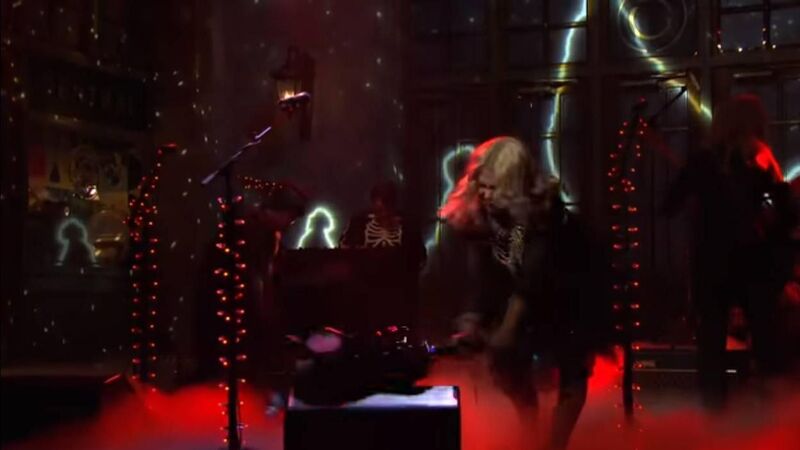Tom Dunne's Music & Me: Phoebe Bridgers' bitchin' guitar antics kept up a proud tradition

Phoebe Bridgers smashes her guitar on Saturday Night Live.
In other good news my plans for a Westworld style Rock Island that music legends can be sent to before they destroy their own legacy is at an advanced stage. Too late I know for Morrissey, Johnny Rotten or Ian Brown, but this has been no easy task and anyway, I’m doing it for the kids.
My mission took on extra impetus in the last few weeks when the known rock world, and its leader David Crosby, decided to weigh in heavily after Phoebe Bridgers destroyed a guitar on Saturday Night Live. It was a major faux pas for the skeleton-suited one. Only men are allowed break guitars. Hadn’t Phoebe gotten the memo?





